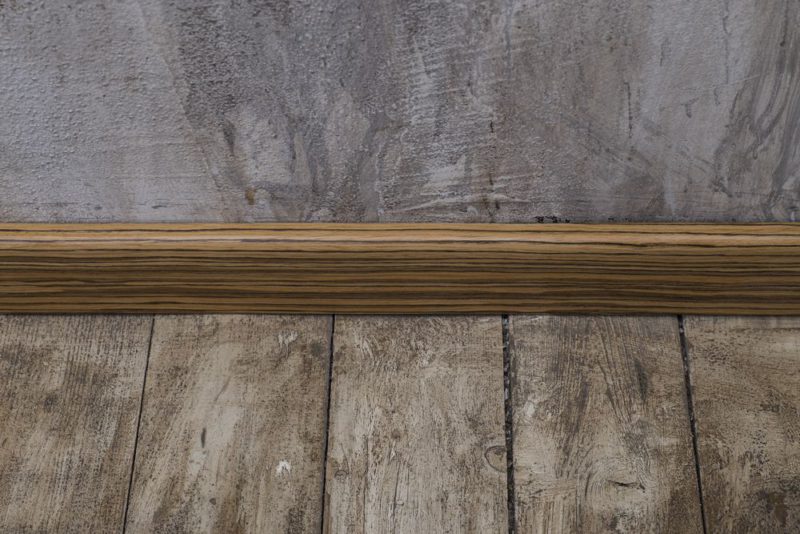Ниже плинтуса
In this episode, we’ll have a look at some popular modern expressions that describe current state of some of the affairs in the world.
Приве́т, друзья́!
Hello friends!
Не бу́ду скрыва́ть, что вдохнове́нием на ка́ждый эпизо́д подкаста явля́ется жизнь вокру́г нас.
I don’t mind telling you that the inspiration for all the episodes of this podcast is the life around us.
Вот смо́тришь поро́й телеви́зор, просма́триваешь страни́цы в интерне́те, и́ли чита́ешь но́вости, и не перестаёшь удивля́ться, как ни́зко упа́ла мора́ль на́шего о́бщества и как обесце́нились челове́ческие це́нности.
Sometimes you watch TV, surf the net, or read the news, and never cease to be amazed by how low the morality of our society has fallen and how much human values have depreciated.
Не бу́ду ссыла́ться на конкре́тные приме́ры, так как суть на́шего подкаста не об э́том, но приме́ры популя́рных выраже́ний, кото́рые сего́дня мо́жно чита́ть в сетя́х на э́ту те́му, приведу́.
I won’t cite any specific examples, since that’s not the point of this podcast, but I will give you some examples of popular expressions on this topic that can be seen online today.
Начнём вот с э́того:
Let’s start with this one:
Е́сли вам каза́лось, что́ то, что случи́лось вчера́, э́то дно на́шей культу́ры, то вы ошиба́лись. Сего́дня оди́н из гла́вных музе́ев го́рода постуча́лся сни́зу.
If you thought that what happened yesterday was rock bottom for our culture, then you were wrong. Today, one of the city’s main museums stooped even lower.
В чём смысл приме́ра:
What is the meaning of the example:
Под сло́вом дно в разгово́рной ре́чи ча́сто име́ется ввиду́ о́чень ни́зкий у́ровень чего́-ли́бо. Скоре́е да́же у́ровень, ни́же кото́рого не опусти́ться, как не опусти́ться ни́же дна реки́, о́зера и́ли мо́ря. В да́нном приме́ре говоря́щий име́ет ввиду́, что на́ша культу́ра нахо́дится на о́чень ни́зком у́ровне, что осо́бенно очеви́дно по́сле како́го-то вчера́шнего собы́тия. Музе́й постуча́лся сни́зу – зна́чит, что́ то, что устро́ил музе́й, нахо́дится да́же ни́же э́того дна.
In colloquial speech, the word “bottom” often means a very low point, or rather a level already so low that it can’t be surpassed – just like one can’t go further down than the bottom of a river, lake or sea. In this example, the speaker means that our culture has stooped to a new low as evidenced by whatever event happened yesterday. The museum “was knocking from below” (as if asking to be let in from a lower point) meaning that what happened in the museum is even lower than the aforementioned “bottom.”
Ещё ча́сто испо́льзуется выраже́ние проби́ть дно, т.е. опусти́ться ни́же у́ровня дна в фигуративном смы́сле. Наприме́р:
We also have the expression “to break through the bottom”, i.e. to sink down below the bottom in the figurative sense. For example:
Кана́л “Безымя́нный” свои́м очередны́м репорта́жем проби́л но́вое дно.
Channel “Nameless” has sunk to a new low with its new reporting style.
Т.е. но́вый репорта́ж кана́ла, кото́рый мы назва́ли “Безымя́нный”, ещё бо́лее ни́зкого ка́чества по сравне́нию со все́ми предыду́щими репорта́жами.
Meaning the new reporting style of this channel, which shall remain nameless, is of even poorer quality than all its previous reports.
Заголо́вок сего́дняшнего подкаста то́же подразумева́ет ни́зкий у́ровень. Но в отли́чие от относи́тельно но́вого выраже́ния про дно, ни́же пли́нтуса я по́мню с о́чень да́вних времён. Э́ту фра́зу мо́жно испо́льзовать для описа́ния чего́ уго́дно, наприме́р:
The title of today’s podcast also implies a low level. But unlike the previous relatively new expression about the “bottom,” I remember the expression “below the baseboard” from a long time ago. This phrase can be used to describe anything, for example:
Настрое́ние сего́дня ни́же пли́нтуса, да́же не зна́ю, чем его́ подня́ть.
My mood today is “below the baseboard” (lower than low), I don’t even know what to do to lift it.
Спрос на но́вое жильё в це́нтре го́рода упа́л ни́же пли́нтуса.
Demand for new housing downtown has dropped “below the baseboard” (to an all-time low).
Что за ме́рзкий челове́к! Что ни посту́пок, так ни́же пли́нтуса!
What a despicable man! His every move is “below the baseboard!” (lower than the last)!
В после́днем приме́ре име́ется ввиду́, что посту́пки э́того челове́ка нахо́дятся в са́мом низу́ шкалы́ мора́ли.
The last example implies that the this person’s actions are at the very bottom of the moral scale.
На э́том, я заверша́ю сего́дняшний подкаст. А вам жела́ю по́мнить о том, что все мы лю́ди из одно́й и той же пло́ти и кро́ви, и что о́бщего у нас гора́здо бо́льше чем того́, что нас разделя́ет. Будьте до́брыми к окружа́ющим, и пусть доброта́ к вам вернётся стори́цей!
With that, I conclude today’s podcast. And I hope you’ll remember that we are all human, made of the same flesh and blood, that there are more things that bind us than what separates us, so be kind to others, and may you reap that kindness one hundredfold!
До сле́дующего эпизо́да!
Until the next episode!
P.S. A baseboard (плинтус) is a plank that covers the juncture between the wall surface and the floor.

Subscribe to our basic newsletter and receive notifications about new episodes of Very Much Russian podcast.
Or subscribe to our premium newsletter to receive both the basic newsletter and all our previous podcast episodes, one by one, on a regular basis.
Today's vocabulary
- пробить дно
Conversational Russian[pra-BEET' dno]lit.: to break through the bottom - to do something so morally (or in any other way) low that is lower than everything else; - to drop as low as never before - ниже плинтуса
Conversational Russian[NEE-zhe PLEEN-tu-sa]lit.: below the baseboard on a very low level - сторицей
Conversational Russian[STO-ree-tseî]~ hundredfold (only used in combinations with other words)










